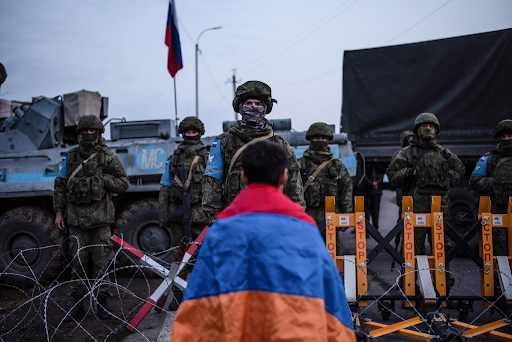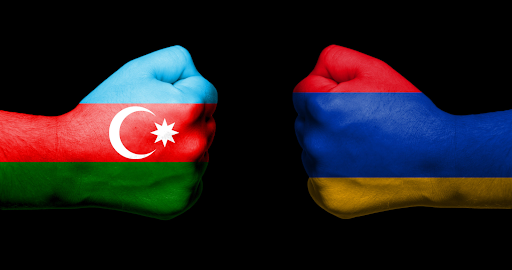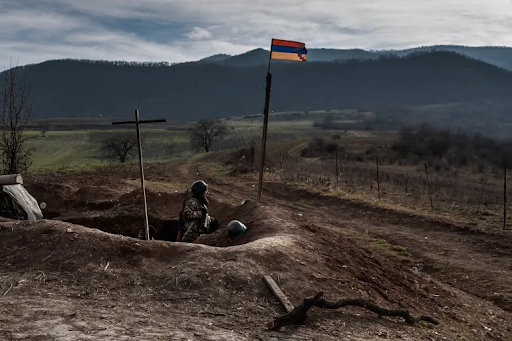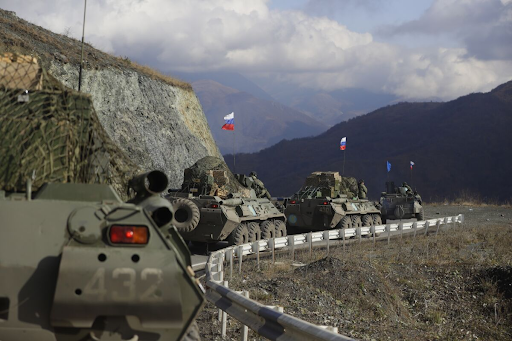
The aftermath of a brief yet destructive war between Armenia and Azerbaijan, overshadowed by larger geopolitical dynamics, has led to a dire humanitarian crisis in the South Caucasus region. The democratic republic of Armenia, defeated by its wealthier neighbor Azerbaijan, bears the brunt of the consequences, impacting the vulnerable population of Nagorno-Karabakh – an enclave also known as Artsakh to Armenians. Despite its obscurity on the global stage, the region’s struggles are reaching critical proportions due to a prolonged blockade that has hindered essential supplies, prompting concerns of a potential humanitarian catastrophe.
The term “genocide” has been invoked by a former International Criminal Court prosecutor, drawing attention to the gravity of the situation. The United Nations Security Council convened a special session following an appeal by the Armenian ambassador, highlighting the urgency of international intervention to prevent a deepening humanitarian crisis.

An in-depth understanding of the historical and political complexities of the South Caucasus reveals that Nagorno-Karabakh’s fate is intertwined with both regional and global powers. While Armenia and Azerbaijan remain central to the conflict, the involvement of Russia and the United States is crucial for resolving the crisis. Unfortunately, the preoccupation of these powers elsewhere has resulted in the plight of Nagorno-Karabakh being largely overlooked.
The roots of the current crisis extend back decades. Nagorno-Karabakh’s autonomy in the early 1920s was a product of Soviet nationality policy. However, as the Soviet Union faced disintegration, tensions escalated, leading to violence, pogroms, and ethnic cleansing. The First Karabakh War ensued, culminating in a 1994 armistice that temporarily settled the matter.

Despite the cease-fire, underlying disputes persisted. Armenians gained control over other parts of Azerbaijan, causing displacement on both sides. The Second Karabakh War in 2020 witnessed Azerbaijan’s swift victory, aided by advanced weaponry and external support. The subsequent cease-fire, brokered by Russia, marked a temporary pause in hostilities.
However, Azerbaijan’s actions post-cease-fire, including repeated border crossings and the blockading of the Lachin corridor, have created a dire humanitarian situation. Armenians in Nagorno-Karabakh find themselves trapped with dwindling resources, while larger geopolitical considerations overshadow the crisis.
Amid the United States and NATO’s focus on Ukraine and Russia, the repressive policies of the Azerbaijani regime seem to go largely unchallenged. The geopolitical vise in which Nagorno-Karabakh finds itself complicates matters further. While Armenians display resilience, their vulnerability in a hostile neighborhood necessitates support from the international community.

Plans for infrastructure development offer hope, yet they raise geopolitical concerns due to Armenia’s relationships with Iran and Russia. Despite its significance, Armenia struggles for attention amidst major global conflicts.The evolving global power dynamics add complexity to the situation. As the United States contends with maintaining its influence, emerging powers question its hegemony. The Shanghai Cooperation Organization and BRICS countries seek to reshape the international order.
Caught in this intricate web, Armenia’s future holds broader implications. The nation’s predicament influences the relationships between Turkey, Russia, Iran, and the United States. Armenia serves as a focal point for redefining strategic alliances.
In a world consumed by various conflicts, Armenia’s significance may appear diminished. However, the nation’s resilience, coupled with its role in geopolitical realignments, underscores the importance of addressing the Nagorno-Karabakh blockade crisis. As the U.N. Security Council convenes to address the concerns, there is a glimmer of hope that humanitarian and democratic considerations will ultimately prevail over geopolitical complexities.





